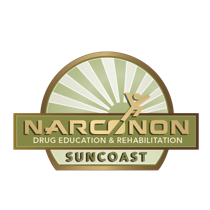How Loved Ones Can Support Recovery Without Enabling

Caring for a family member or friend who is going through recovery is not the easiest thing to do. You want to help, but at the same time, there are some factors that are important to know because they may impede the recovery process. One of those factors is “enabling.”
Addiction, first and foremost, concerns the addict themselves, their choices, and the consequences for their health and well-being. However, addiction also has a ripple effect that spreads to family members and loved ones, friends, and colleagues.
Recovery from addiction, therefore, can be a difficult road. That’s why support for your loved one is so important. However, for that support to be meaningful, it’s important to know about enabling, and what it means.
What is Enabling?

Enabling, in terms of addiction, means any action that unintentionally allows a person to continue their addictive behavior. While well-meaning, enabling behaviors can have the opposite effect because they prevent the recovering addict from facing the consequences of their actions.
This, unfortunately, will make the recovery more difficult. Here are some examples of what we mean by enabling:
- Making excuses for the person’s behavior.
- Bailing them out of legal or financial problems.
- Providing them with money or resources that could be used to support their addiction.
- Taking over their responsibilities.
- Minimizing the severity of the problem.
Consequences of Enabling
It’s clear you want to help and provide support to a loved one who is dealing with recovery from addiction. On the other hand, certain factors in that person’s life caused them to start the addiction cycle. These are the factors that need to be confronted and, as much as possible, eliminated from the person’s life. This is what recovery is all about.
When we allow the recovering addict to avoid that confrontation and not face the consequences of their addiction, the process of recovery will become difficult and lengthy. For example, enabling will prevent the recovering addict from looking at the impact they have created on their own lives and that of others. Making excuses for your loved ones will only serve to reduce their motivation to change.
Moreover, without giving your loved one the opportunity to change will allow them to not be responsible for their decisions and actions which, in turn, can lead to a potential relapse.
How to Offer Support Without Enabling
Of course, you want to give your friend or family member in recovery the best support possible help. And with that intention, there are some things you can do that will truly help your loved one and make their road to recovery easier and more successful.
1. Create a Safe Environment
One of the most important things in supporting a recovering addict is to clear the environment from any things that may “trigger” the addiction. For someone addicted to alcohol, you want to clear away any alcohol from the house such as beer in the fridge and wine in the basement. In the case of narcotics, try not to smoke in the environment of the recovering addict, and keep any medication out of reach.
2. Be Honest and Open
Make it very clear that your support is a two-way street. This means that while you will do anything to support your loved one, you expect them to work on their recovery. Be open and direct about not allowing any behavior that may fuel their addiction, including continued association with user buddies.
3. Learn About Addiction

Familiarize yourself with what addiction actually is. There is plenty of information about this subject online. For example, the National Institute on Drug Abuse provides comprehensive information about drug and alcohol addiction. Knowing what your loved one is going through will be of tremendous value in their recovery.
4. Keep Your Support Emotional
Listen to your loved one, encourage conversation, and validate their progress. Support accountability. Foster their intent to kick their habit and encourage efforts to manage their lives. Don’t confuse this support by giving them money and valuables, since these can trigger unwanted habits.
5. Take Care of Yourself
Supporting someone toward recovery can be challenging. Your own health and well-being are important and should not be neglected while taking care of a loved one.
The Key to Successful Recovery
Supporting a loved one in recovery means navigating a road that may include pitfalls. However, if your support is true and avoids any form of enabling, it will contribute to a successful recovery.
Narconon Suncoast is here to help you with the recovery of your loved one. We offer support and guidance to family members and friends and help them navigate this part of our program. In fact, our comprehensive, holistic program has helped thousands to break free and live fulfilling lives without drugs.
Call us for a free consultation, more information about interventionists we work with, or to learn about our program today.


